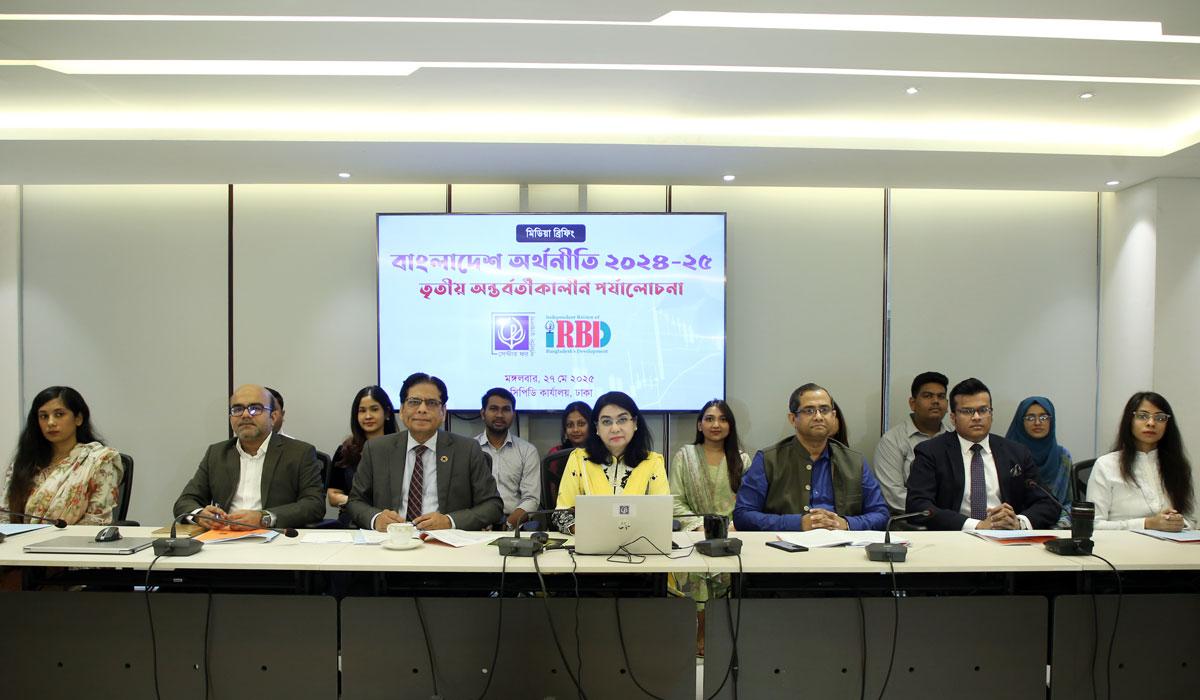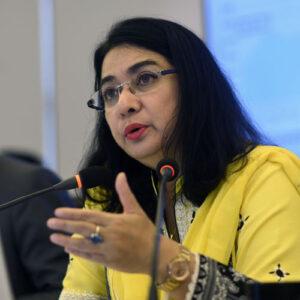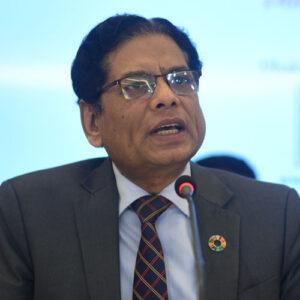 Presentation | Report | Policy Brief
Presentation | Report | Policy Brief
Non-performing loans (NPLs) in Bangladesh’s banking sector have surged nearly threefold over the past two years, reaching an alarming BDT 345,765 crores in the second quarter of FY2024-25. This sharp rise highlights deepening vulnerabilities within the banking sector, posing a major threat to economic stability.
Alongside the soaring non-performing loans, Bangladesh’s economy faces several critical challenges. Total revenue collection grew by only 5.3 per cent during July–January FY2024-25, far short of the growth needed to meet annual targets. Inflation has remained persistently above 9 per cent for two years, driven largely by surging food prices and structural supply bottlenecks.
The ongoing power and energy crisis—characterised by extended load shedding, gas shortages, and rising fuel costs—has disrupted households and industrial production alike. Meanwhile, the capital market continues to suffer from declining real value, falling investor confidence, and widespread allegations of market manipulation. Additionally, the imposition of reciprocal tariffs by the United States on Bangladeshi exports continues to pose a significant challenge, threatening export earnings and the country’s foreign exchange inflows.
The above-mentioned observations emerged at a media briefing titled ‘State of the Bangladesh Economy in FY24-25 (Third Reading)’ on Tuesday, 27 May 2025, organised by the Centre for Policy Dialogue (CPD) under its flagship programme Independent Review of Bangladesh Development (IRBD). Dr Fahmida Khatun, Executive Director of CPD, delivered the keynote presentation on behalf of the IRBD team.
 Dr Khatun highlighted several key policy recommendations across different sectors to tackle these pressing challenges.
Dr Khatun highlighted several key policy recommendations across different sectors to tackle these pressing challenges.
In public finance, she emphasised the need for innovative revenue mobilisation strategies. This includes expanding taxation to cover the growing digital economy and taking strong measures to curb tax evasion and illicit financial flows.
To address persistent inflation, Dr Khatun urged the government to strengthen market oversight and revise competition laws to break monopolies and cartels. She also called for expanding social safety nets to protect the most vulnerable populations from rising living costs.
Turning to the banking sector, she stressed the importance of enforcing strict governance standards, improving loan loss provisioning to better manage credit risks, and removing political influence from bank management and board appointments.
In the external sector, the focus should be on maintaining robust remittance inflows, which are critical for forex stability. Careful management of the exchange rate was highlighted as essential to sustain macroeconomic balance.
For the capital market, Dr Khatun recommended boosting transparency, speeding up reforms related to Initial Public Offerings (IPOs), and empowering regulatory bodies to restore investor confidence.
Finally, she underscored the urgent need to resolve the ongoing energy crisis. Key measures include accelerating domestic gas exploration, promoting renewable energy sources, and upgrading the national power grid to improve reliability and efficiency.
An open-floor Q&A session with journalists from both print and electronic media followed the discussion.
 Professor Mustafizur Rahman, Distinguished Fellow at CPD, responded to media questions and noted that while export growth has been impressive at nearly 10 per cent, capital machinery imports remain low. This export growth is primarily volume-driven, especially in ready-made garments for the US and EU markets, utilising existing production capacity rather than new machinery.
Professor Mustafizur Rahman, Distinguished Fellow at CPD, responded to media questions and noted that while export growth has been impressive at nearly 10 per cent, capital machinery imports remain low. This export growth is primarily volume-driven, especially in ready-made garments for the US and EU markets, utilising existing production capacity rather than new machinery.
On the issue of black money whitening, he stated that although provisions for this may remain in the budget, such measures are neither economically beneficial nor morally acceptable, and politically problematic.
He explained that unreported money arises both from illegally earned funds and legally earned but unreported assets due to policy gaps, especially in real estate pricing. Revising land prices might reduce unreported money somewhat, but policy shortcomings remain, and including such provisions risks discouraging honest taxpayers.
Regarding the interim government’s continuation of previous rules and reforms, Professor Rahman observed that while some efforts are underway, they remain incomplete. Institutional and economic policy reforms, particularly in banking and the National Board of Revenue (NBR), are interconnected and require better coordination. These reforms will impact the economy, but a duly elected government must fully implement them to realise positive outcomes.


